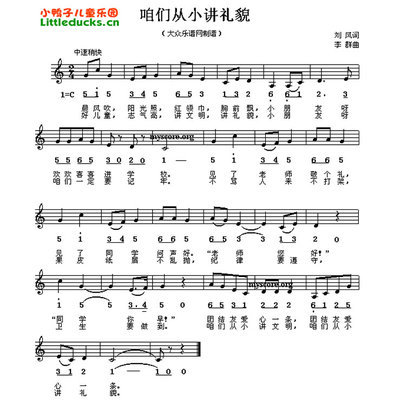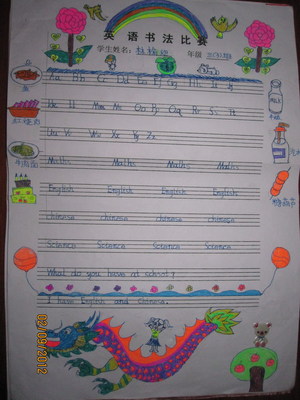这本词源字典,从很大程度上解释了绝大部分英语单词的来源,澄清了目前乱拆单词的现象,对大量词汇的记忆起到非常重要的作用。但是刚刚开始看的时候比较慢,以后就会慢慢的快起来了。
http://www.etymonline.com/ 这个网上词源字典也不错的。
The originsof the English language
The life stories of individual words, often mazyand conjectural, need a fixed backdrop if they are to make sense.So first, a little history. English is a member of theIndo-European family of languages. The precise origins of this arestill a matter of some controversy, but the consensus view is thatit came on the scene around 8,000 years ago in the general area tothe north of the Black Sea. Since then it hassplit up into a large number of subgroups, which today provide nearly all the languages of Europe andhave also spread over large areas of the Middle East and
northern India. Among them are the Indo-Iranian languages,including Hindi and ancient Sanskrit; the Slavic languages –Russian, Polish, Czech, Serbo-Croat, and so on; the Balticlanguages, Latvian and Lithuanian (which of all these modernlanguages mostclosely resemblesits Indo-Europeanancestor); the Celticlanguages, such as Welsh, Gaelic, and Breton; and Greek.But in thehistory of English, there are two particular groups that are ofcentral importance. Thefirst is theRomance languages:classical Latin,the literary languageofancientRome;and French,Italian, Spanish,Portuguese, and Romanian, which evolved fromVulgar Latin, the language of the common people that spread throughthe Western Roman Empire. The role of Latin and French, inparticular, in the growth of English vocabulary has been immense.We acquired a
sizeable portion of our words from one or other of thesesources.
The secondimportant group, of course, is the Germanic languages: for that isthe group to which English itself belongs. The existence of theGermanic peoples as a separate speech community dates back at least3,000 years. Their first northern European home has been traced toan area around the river Elbe. At this time they allspoke thesame language,which isgenerally knownas Common Germanic.
Around the 2nd century BC this began to split up into threedistinct dialects. One was EastGermanic. Theonly EastGermanic languageof which anywritten evidence survives is Gothic. Now extinct, it was spoken byGermanic peoples who migrated back eastwards to the area of modernBulgaria and the Crimea. It provides us with our closest glimpse ofwhat prehistoric C common Germanic must have been like. The secondwas North Germanic, which has evolved into modernSwedish,Danish, Norwegian,and Icelandic.And lastlythere wasWest Germanic, the
ancestor of modern German, Dutch, Flemish, Frisian, andEnglish.
The forerunners of English crossed the Channel in the 5th and 6thcenturies AD.
They were brought by peoples from the northeastern corner of theEuropean mainland, around Jutland and southern Denmark – theAngles, Saxons, and Jutes.Theyspoke amutually intelligibleset ofGermanic dialects(whose closest modern continental relative isFrisian), which formed the basis of what is now known as OldEnglish (the alternativeterm ‘Anglo-Saxon’ is nolonger much used). Thiswas a moreor lesshomogeneous language,but with marked geographicaldifferences reflecting the areas into which the various Germanicpeoples had moved: the Angles into the Midlands (where Mercian wasspoken)and the North (whose form of Old English is now calledNorthumbrian); the Jutes into Kent; and the Saxons into the rest ofsouthern and western England (their speech is known as WestSaxon).
每一个单词的背后都有一段生命历程, 而这个过程又是错综复杂的且带有推测性的, 但是为了弄清楚每个故事, 那么需要了解这个单词的形成背景。那么,首先稍微讲讲英语的历史。
英语属于印欧语系的一支。印欧语其精确来源还存在着争议,但是统一的观点认为大致是诞生于8000年前黑海北部一代。从那时起, 该语言就开始分离出大量的语言种类,几乎包括了当今所有的欧洲语言、大部分的中东语言,以及印度北部的语言。其中有印度-伊朗语系,包括北印度语与古梵语;斯拉夫语系,有俄语,波兰语,捷克语,塞尔维亚-克罗地亚语等等;波罗的语系, 包括拉脱维亚语、立陶宛语,这个语言是目前最接近原始印欧语的;凯尔特语系,包括威尔士语、 盖尔语、布列塔尼语以及希腊语。
在英语语言形成的历史当中,有两种语言起到了十分关键影响。第一种就是拉丁系语言:古典拉丁语(古罗马时期文人使用的语言),法语,意大利语,西班牙语,葡萄牙语罗马尼亚语。来自于通俗拉丁语,所谓通俗拉丁语就是普通人讲的拉丁语,该语言通过西罗马帝国而得以广泛传播。尤其是拉丁语与法语对英语词汇的影响是巨大的,其中有相当一部分单词就是来源于这两种语言。
对英语影响第二大的语言就是日耳曼语系:因为英语本身就属于这个语系。讲着独立语言的日耳曼人可出现在3000年前。他们的第一个定居点就是在欧洲北部的易北河流域。在这个时期,他们讲着同样的语言—通用日耳曼语。
大约在公元前2世纪,这种语言开始分化成三种方言。第一种就是东日耳曼语,现在已经消亡了,能证明其的确存在的唯一语言就是哥特语。这种语言被那些迁移至现在的保加利亚与克里米亚地区的日耳曼人使用。这种语言给史前—通用日耳曼语提供了一定的信息。第二种是北耳曼语,今天的瑞典语, 丹麦语,挪威语,以及冰岛语都源于此。最后一种是西日耳曼语,发展出今天的德语, 丹麦语,弗兰德斯语,弗里斯兰语, 以及英语。
公元5世纪,讲英语的先驱们操着欧洲大陆东北角的地方语言横穿过英吉利海峡,这块地方大致是丹。他们讲着相互之间可以理解的方言(最接近今天的弗里斯兰语),这种语言就形成了古英语(也可称作盎格鲁-撒克逊语,但是这一专业名称几乎不再被大量使用)。
相关博文:三本词源字典那本更适合初学者?
 爱华网
爱华网



